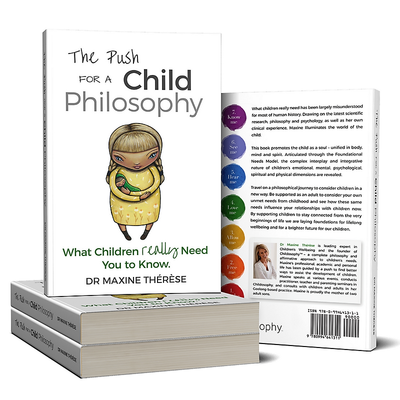
Anxiety is a growing problem among young people. Here, Geelong psychologist Dr Maxine Therese shares her advice for parents of anxious children.
Anxiety in children has risen significantly in the last decade. Anxiety results when a child experiences ‘big feelings’ that they are unable to communicate verbally, which are then expressed through their behaviours.
Anxiety indicates that the child is having difficulty transitioning in a way that feels safe and secure to them. Separation anxiety is something many children experience and the body responses that result from not being ‘ready’ to separate can be difficult for children to feel, as these responses really do seem to come from nowhere. If as parents we can consider this experience, we might recognise that the energy of the environment of home and school, for example, can have a very different feel to children.
If children feel unsafe without their parents, or feel that they do not have enough time with them, they may be resistant to separation. The uncertainty of the feelings children experience as well as what is deemed “appropriate” often means that unfamiliar places can be frightening and stressful for many children.
When a parent asks a child, “What is wrong with you?” they are unaware of the signals the child is sending about their need for reassurance. There are many ways that anxiety will present in the child, from clinging to being rigid, having fears, exhibiting insecurity, and unstoppable crying.
Counter to much of the advice given that suggests it’s better to just leave the “anxious” child without saying goodbye, as they will settle in time – research indicates that establishing a reuniting plan well before the drop off time, allows the child to enter the period of separation when it happens in an open, receptive way – rather than being closed, combative, or resistant when it happens.
If your child experiences anxiety, they are proclaiming ‘soothe me’, and as parents it is necessary for us to soothe our child until they can do this for themselves.
Helping children to understand their feelings requires us to make the space to process these feelings with our children.
Putting a special plan in place for how long the separation will be, as well as awareness about the assured reunion, will settle your child’s stress response.
The more emotionally consistent parents are, the more secure children feel. Routines are very good for assisting feelings of security.
Remember, it is difficult to hold the space and process feelings with your child if you are rushed or emotionally imbalanced due to another issue that is taking your focus away from the present moment.
Children who feel that their parent has a genuine desire to be with them, (as they have already discussed a way to reunite with them), will have a smoother transition.
Validating your child’s feelings and giving comfort and reassurance, means your child will be less stressed by any transition or feared separation when it occurs.







